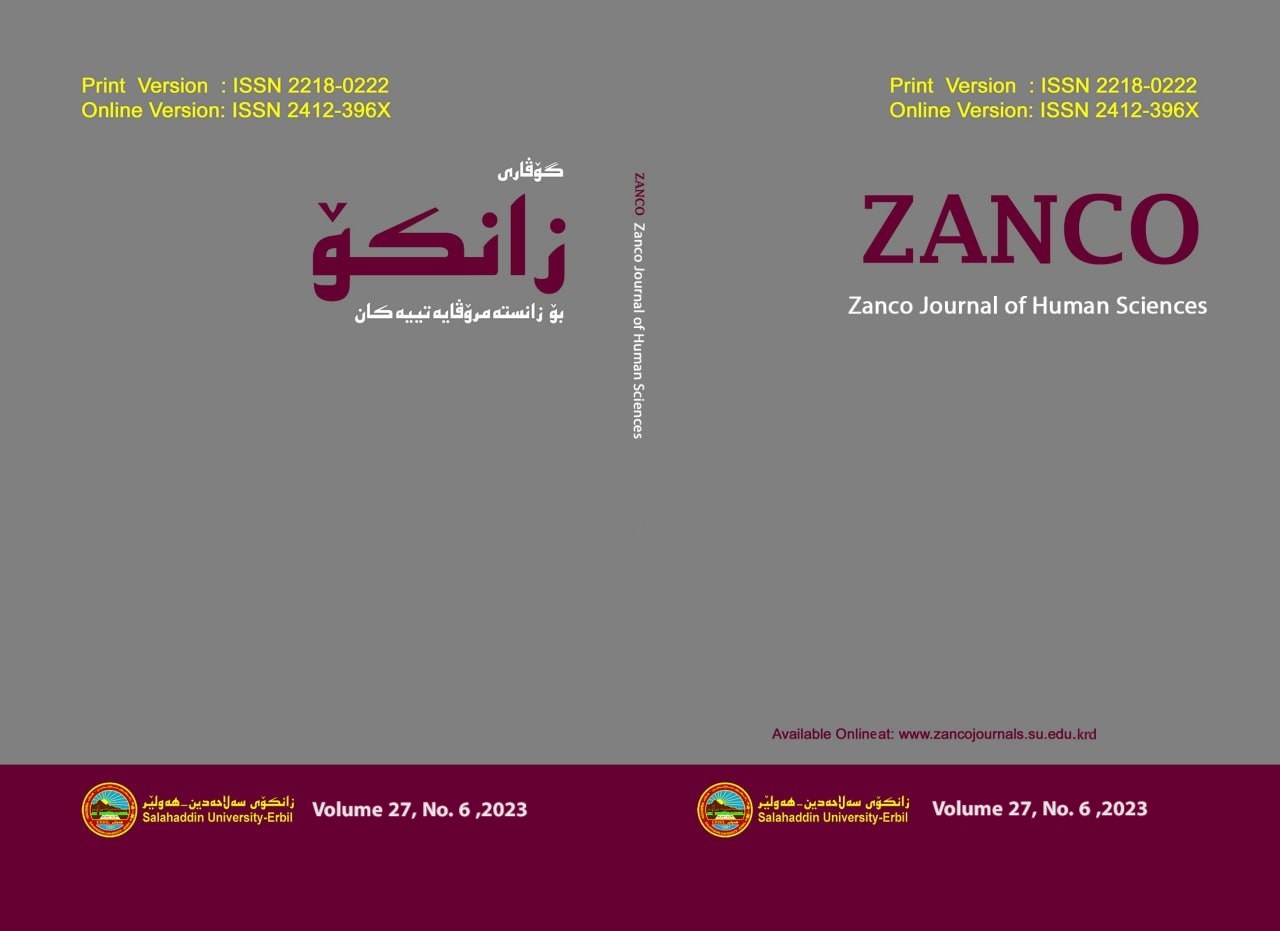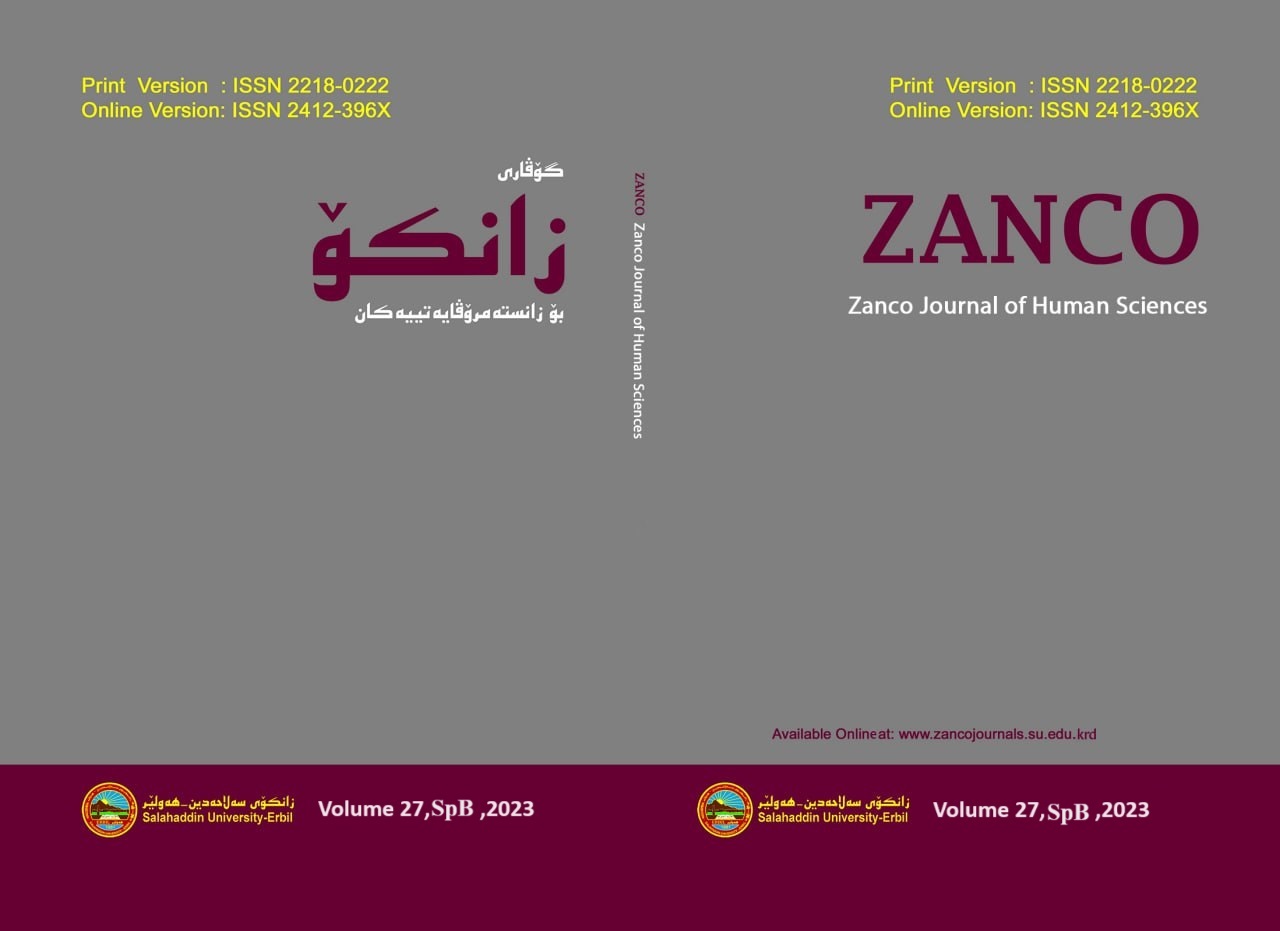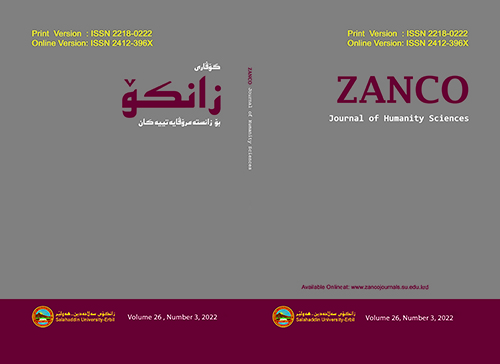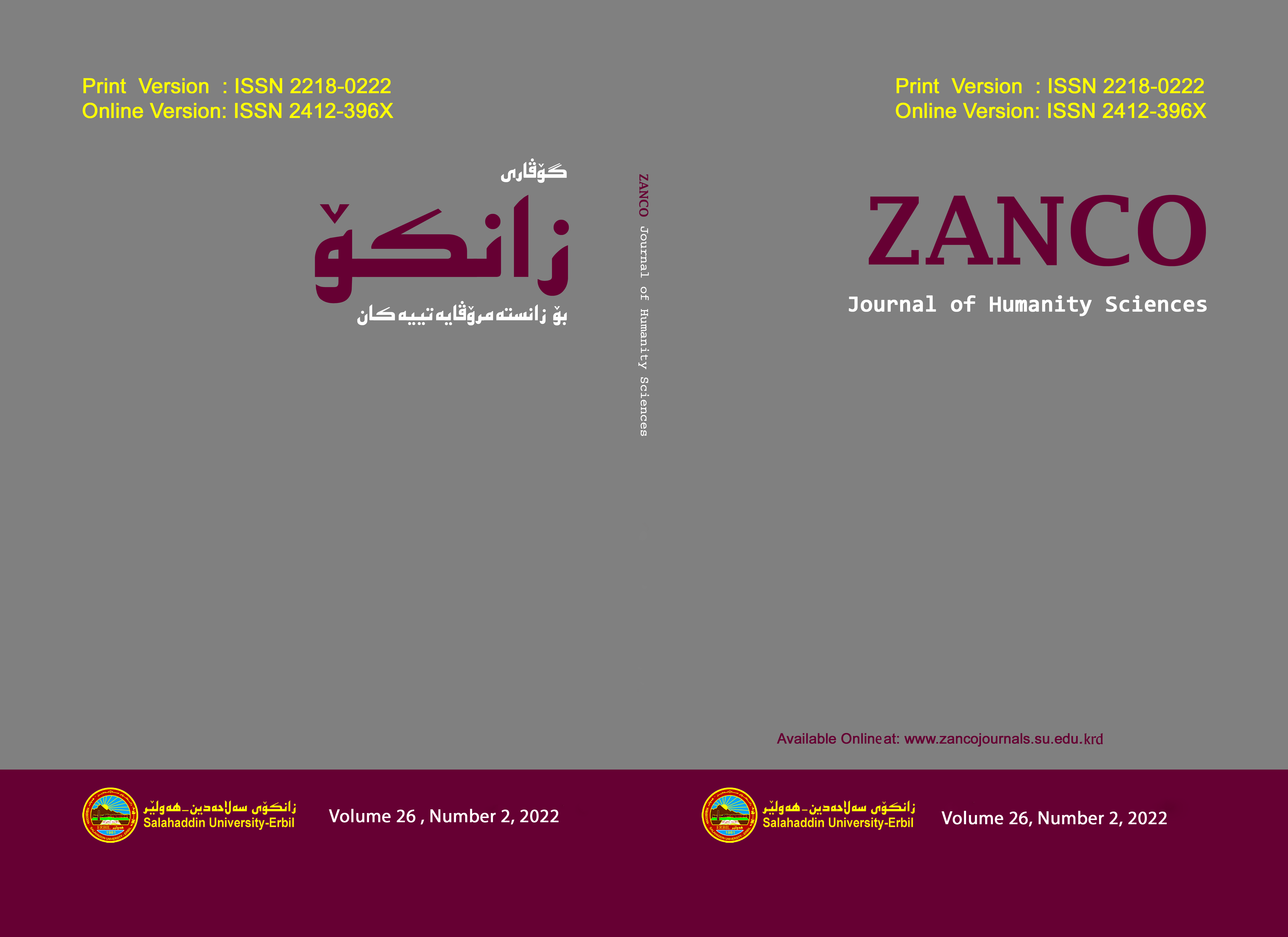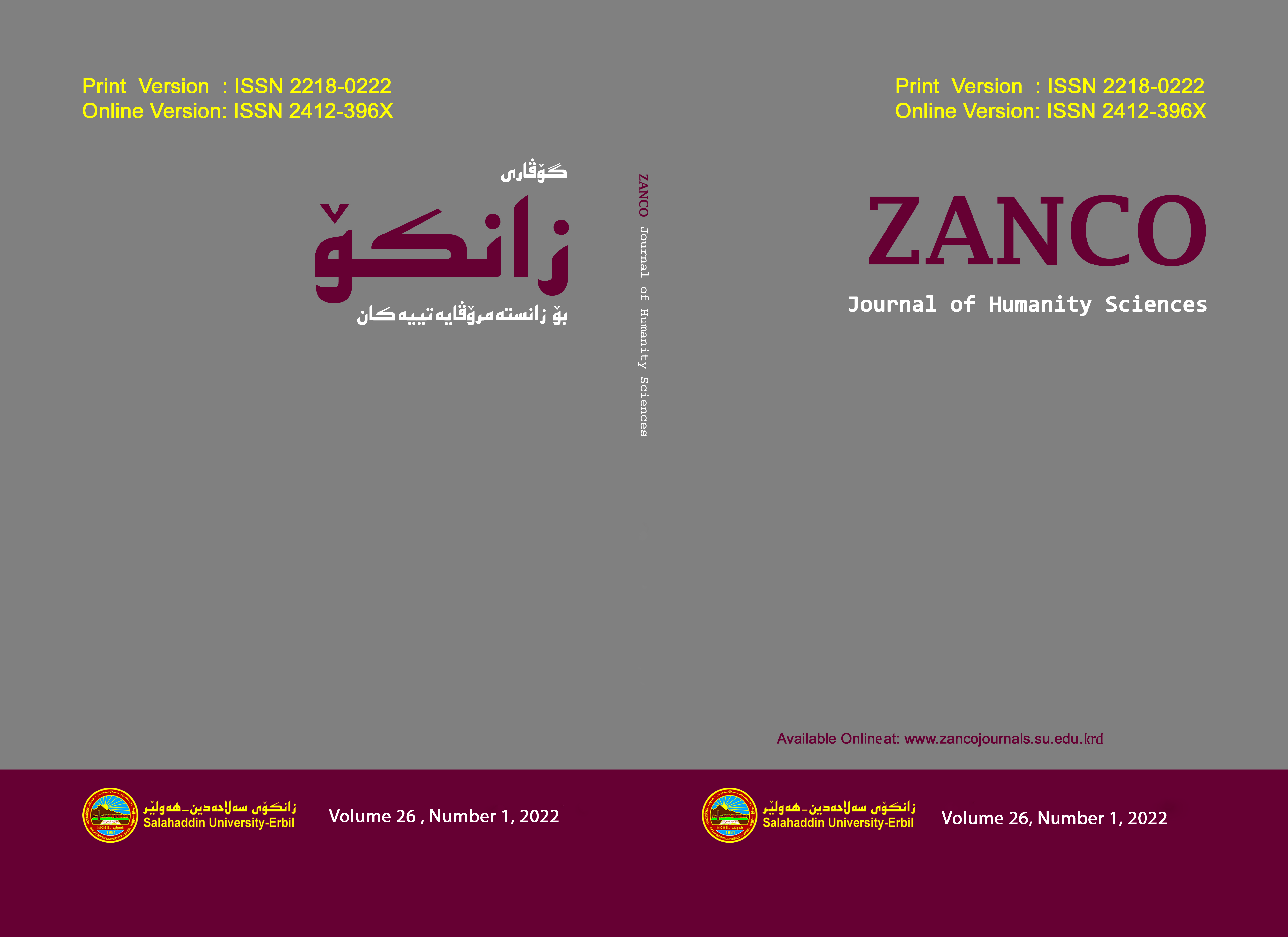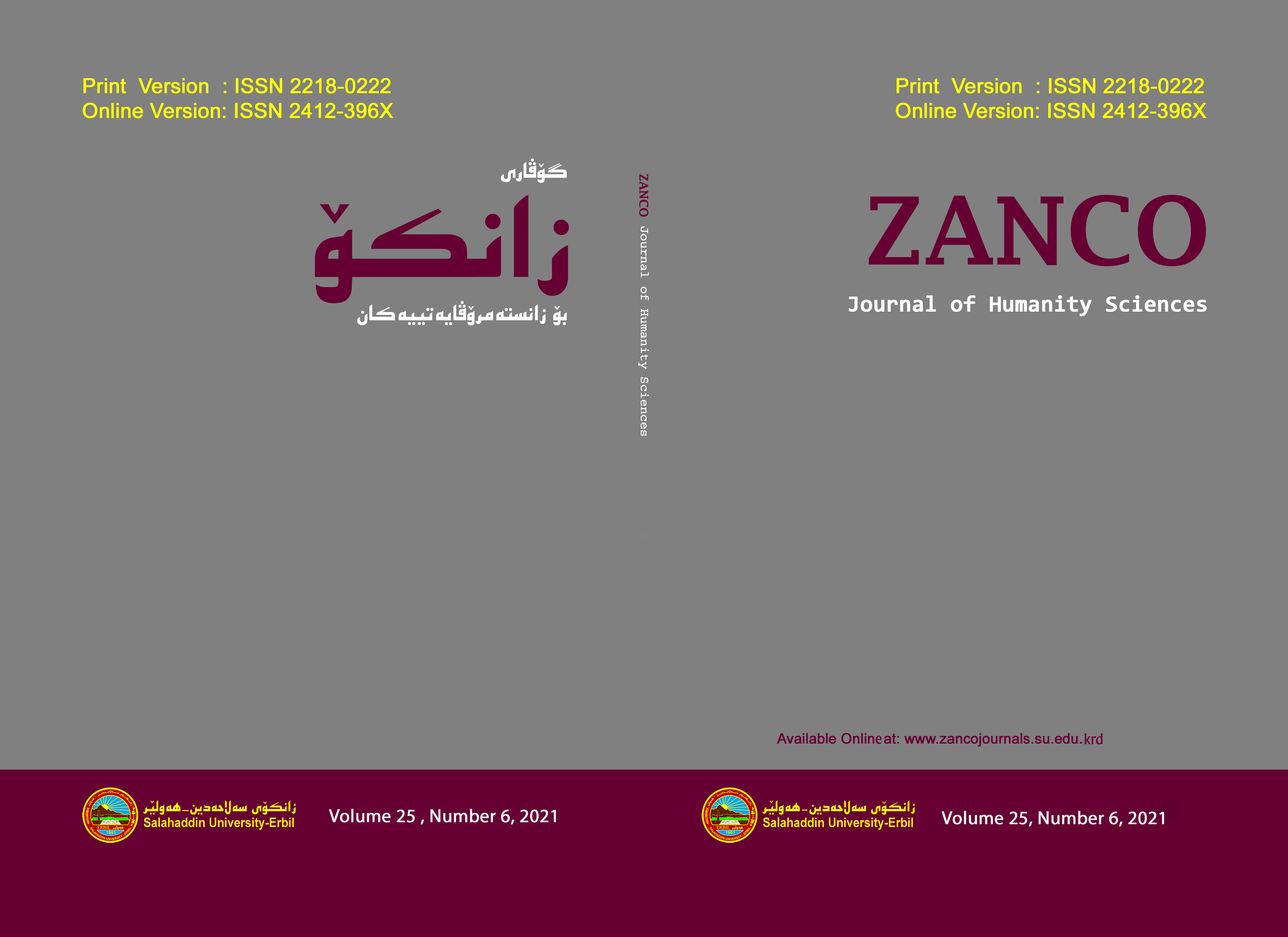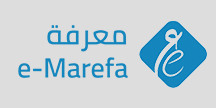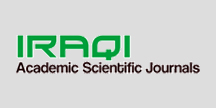Archives
-

Vol. 28 No. 2 (2024)
Advancing Knowledge Through Research
Undoubtedly, the role of research and scholarly inquiry remains paramount in advancing human understanding. The Zanco Journal of Human Sciences serves as a platform for researchers and academicians to disseminate their findings and contribute to the collective body of knowledge. With its recent compilation of 20 articles covering various subjects, ranging from classical Kurdish poetry to critical discourse analysis, the journal exemplifies the rich tapestry of human knowledge. Hereby, we offer this call to action for researchers and academicians to submit their contributions to the Zanco Journal, fostering a culture of academic excellence and intellectual exchange.
The breadth of topics covered in the Zanco Journal underscores its commitment to diversity and inclusivity within academia. From literary analysis to socio-economic studies, the journal embraces a wide range of disciplines and perspectives, reflecting the multifaceted nature of human inquiry. Researchers from all backgrounds and disciplines are encouraged to submit their work to the journal, fostering a culture of inclusivity and diversity that enriches the scholarly community.
Himdad A.Muhammad
Editor-in-Chief
-

Vol. 28 No. 1 (2024)
A Multilingual Journey Through the Human Sciences
As we explore the latest issue of the Zanco Journal of Human Sciences (ZJHS), published by Salahaddin University, we are greeted with a range of scholarly discourse covering across multiple languages and disciplines. With articles and contributions presented in Kurdish, Arabic, English, French, and Turkish languages, this issue serves as an evidence to the rich linguistic and cultural diversity inherent in the quest of knowledge.
The topics covered in this issue are extensive and impressive as they reflect the multidisciplinary nature of human sciences. From the intricacies of language and literature to the complexities of geography, psychology, foreign language teaching, statistics, and sales, each of the published articles offers unique insights and perspectives that contribute to our collective understanding of the world.
At ZJHS, we are committed to fostering an comprehensive and collaborative scholarly community. We welcome researchers from all backgrounds and disciplines to submit their original research and/or review articles for publication. Regardless of your research interest and discipline, we invite you to share your insights with our readership as we believe in collaborating to build useful knowledge and construct worldviews in favor of humanity.
As we go through the vast landscape of human sciences, let us embrace the diversity of languages, cultures, and perspectives that enrich our collective understanding of the world. Join our team of scholars, researchers, reviewers and editors to continue to push the boundaries of knowledge and advance the frontiers of human inquiry. Submit your original research and review articles to ZJHS today and join us on this exciting journey of discovery and exploration.
Himdad A.Muhammad
Editor-in-Chief
-

Second Arba'ilu International Conference on Syriac and Sureth Studies (2nd AICSSS 2023)
Vol. 27 No. s6 (2023)



